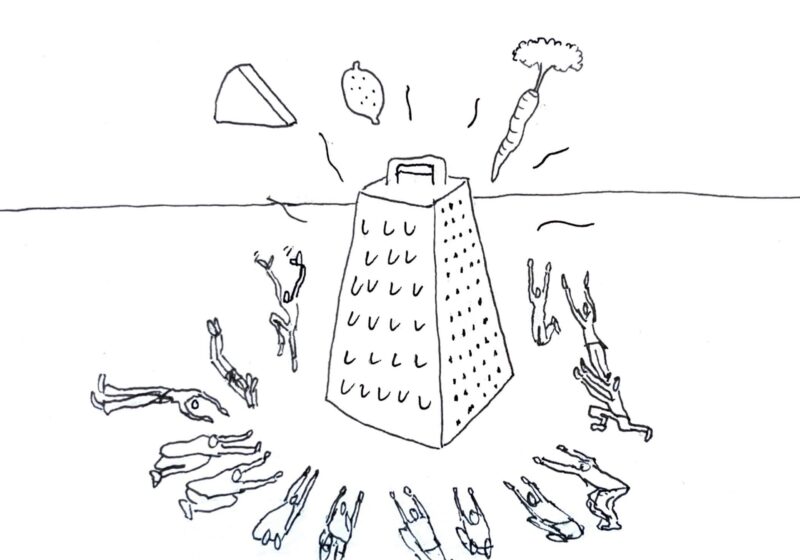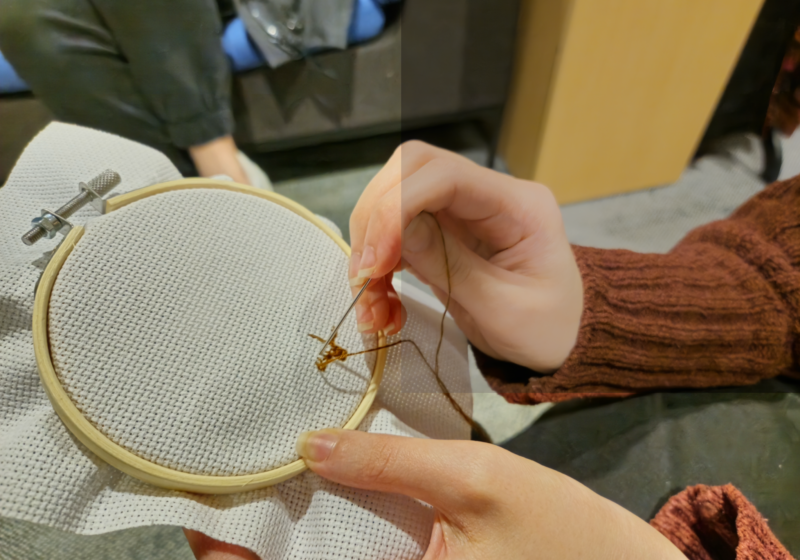It is highly unlikely that the military draft will be reinstated in the U.S. However, if America finds itself at war, with Iraq or any other nation, UR students may find themselves facing draft boards, the first youth to do so in thirty years. Unlike the draft in the Vietnam War, college students would not receive any deferment in a future conflict.
An act of congress would be needed to re-enact the draft, which is why many see it as unlikely that it would even become an issue.
“I think that it will be difficult for a Congress that lived through the Vietnam era to vote in another draft,” junior Katrina Nowak said.
Secretary of Defense Donald Rumsfeld stated in September that there was “not a chance” of an active draft. This has not kept the idea from becoming a matter of debate. Much of the impetus for the recent conversation has come from a Dec. 31 editorial in the New York Times, written by Rep. Charles Rangel of Manhattan.
The proposal was intended to make the army more representative and to keep the President or Congress from jumping into a war.
“I think, if we went home and found out that there were families concerned about their kids going off to war, there would be more cautiousness and more willingness to work with the international community than to say, ‘Our way or the highway,'” Rangel said in a December interview with CNN.
President of the UR College Democrats Josh Gifford echoed this sentiment. “It’s a way to make Bush realize he’s using minorities in his little war games,” Gifford said. Minorities, particularly blacks and Hispanics, make up a higher percentage of the military population than the general population.
For many, it is crucial that the draft be open to everybody if it is going to be implemented.
“If a draft is going to be put into place, it’s important [that it be] across all the bases,” senior Dan Lioy said.
Males between the ages of 18 and 26 and a half must register with the Selective Service System. A draft would be reinstated by an act of Congress, which would also determine the extent of the draft.
A lottery would decide which men would be conscripted, with higher numbers being drawn from those in the highest status group. Men fall into this highest category, if they are in good physical health, for the entirety of the year of their 20th birthday.
Women currently are exempted from registering with the SSS, and would be exempt from the draft. “I recognize the tendency to draft women,” Nowak said, “especially since their service in the Armed Forces is so prominent, but if you draft women you are taking away a major influence in the home. The woman has typically been the figure to hold the country together at home, and if they are drafted that influence will be absent.”
The current military policy which does not permit those who are openly homosexual to join, may be eliminated if there is a draft. Northwestern University professor Charles Moskos, architect of the “don’t ask, don’t tell” policy, has spoken against the policy, saying that the draft is a “higher virtue.”
If a student were to be drafted, they would be exempt from service until the end of the semester. Conscripted seniors would be allowed to finish the year and graduate before reporting for duty.
Draftees would be referred to local draft boards based on the address with which they have registered. These boards would make final decisions on draft selections.
Those who have a moral or religious objection to fighting could declare themselves conscientious objectors upon being drafted. Most of these would be enlisted and would serve in non-combat positions, such as office jobs or positions in the various Medical Corps.
For those who cannot willingly serve in any military position, alternative service would be required for a period at least as long as their enlistment would have been. This service can include working with the elderly and teaching.
NROTC cadets are directly exempted from the draft, but they are on inactive reserve and would serve upon graduation.
Because the cadets are in an officer’s training program, the Navy would not want to cut the training short. “If you ever stopped commisioning officers, you’d be sacrificing tomorrow for the emergency of today,” commanding officer of NROTC at UR Capt. Gavin Lowder.
Although the odds of the draft being reinstated are low, the debate does not follow the partisan lines of the war debate. Democrats have generally opposed the draft in opposing war, but Rangel is a Democrat.
UR College Democrats are, in general, against a war in Iraq. UR College Republicans have not taken a stance on the draft issue.”Our club is diverse in its opinions,” sophomore Jack Voorhees said, “and we have students who stand all along the spectrum [on this issue].”
For many, the draft would be a way to strengthen opposition to war. “If there’s a draft, there’ll be an anti-war movement like this country’s never seen,” senior Mansoor Khan said.
UR students are split in their opinions, although most hope that the draft never becomes necessary. “I’m hoping enough Americans would be willing to volunteer themselves if it came to that,” senior Aileen Kim said.
Others object to conscription. “I don’t believe in making people fight,” senior Candy Curran said. “Going to war should be a personal choice.”Voorhees thought that the current volunteer force would be sufficient and would do better on the battlefield than a conscripted force would. However, “If my country asked me, I would go,” he said.
Brown can be reached at cbrown@campustimes.org.


